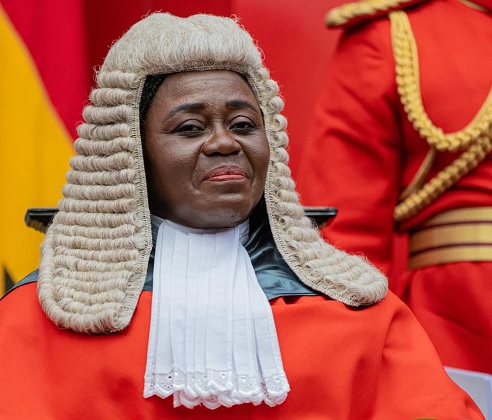
Varied reactions to Supreme Court interpretation of Article 97
The Supreme Court has held that a Member of Parliament (MP) does not vacate his seat if he intends to contest in a future election on the ticket of another political party other than the one that brought him to the House.
In a 5-2 majority decision, the Supreme Court upheld a suit by the Majority Leader in Parliament, Alexander Afenyo-Markin that Article 97(1) (g) and (h) of the Constitution, which formed the basis for the Speaker of Parliament to declare four seats in the House vacant, pertained to future Parliaments and not the current.
The 109-page ruling, which provides an interpretation of Article 97, has reignited discussions about the scope of the Supreme Court’s jurisdiction and its potential impact on Ghana’s constitutional framework.
Following the ruling, there has been varied public reactions.
Two lawyers, Kofi Bentil and Martin for instance in a discussion on Joy FM on Friday talked about the legal impact of the ruling and offered contrasting views.
The ruling, prompted by a petition from Alexander Afenyo-Markin, the Majority Leader in Parliament and Member of Parliament for Effutu on the ticket of the New Patriotic Party (NPP), clarified that a member of parliament seeking to contest future elections under a different party or as an independent does not automatically lose their current parliamentary seat.
Kofi Bentil, a senior lawyer and policy analyst, endorsed the Supreme Court’s decision, highlighting its jurisdiction over constitutional interpretation. Speaking on JoyFM on 15 November 2024, Bentil stated, “The Supreme Court was justified in assuming jurisdiction here. The disagreements over Article 97’s interpretation necessitated their involvement.”
Bentil rejected the argument that the High Court should have handled the matter, stressing the importance of direct Supreme Court intervention in constitutional issues.
He explained, “The ruling clarifies that actions concerning a future Parliament should not disrupt the current one,” calling the decision consistent with a “modern purposive approach” to constitutional law.
He further described the decision as forward-looking, ensuring stability within the current Parliament while allowing MPs to contest future elections under new affiliations without repercussions during their current term.
However, Martin Kpebu, a private legal practitioner, took a more critical view, arguing that the decision favoured the governing New Patriotic Party (NPP) and weakened democratic accountability. “This interpretation benefits the NPP by helping them maintain their majority,” he said, questioning the court’s impartiality.
Kpebu contended that the ruling effectively alters the Constitution and undermines the intent of Article 97. “It creates a loophole, allowing MPs to signal future intentions without accountability in their current term,” he argued.
He also cast doubt on the judicial process, suggesting that dissenting opinions might have been included to lend the ruling an appearance of balance.
The Supreme Court majority decision argued that Article 97(1)(g) and (h) apply only when a sitting MP officially switches parties during the same parliamentary term, not when they express intentions for the next term. Justice Tanko Amadu, however, dissented, calling the ruling a departure from established norms. “This decision oversteps the High Court’s jurisdiction and sets a worrying precedent,” he warned, expressing hope for future reconsideration.
Bentil welcomed the decision as a practical solution for the future, maintaining that MPs aligned with their party during their term should have the freedom to explore new affiliations for subsequent elections.
“This promotes stability in the current Parliament while addressing future challenges,” he explained.
Kpebu, on the other hand, expressed concerns about the long-term implications. “This interpretation weakens the effectiveness of Article 97. When will it ever truly apply?” he questioned, warning that MPs could exploit this ruling to evade accountability during their term.
The case unfolded amid intense political tension, with the NPP and the opposition National Democratic Congress (NDC) holding nearly equal seats in Parliament.
Both Bentil and Kpebu agreed on the need for reform in the appointment of Supreme Court judges to enhance public trust. “The executive’s influence in judicial appointments must be curtailed if we want decisions that reflect public confidence,” Kpebu argued, a point Bentil acknowledged as worth considering.
